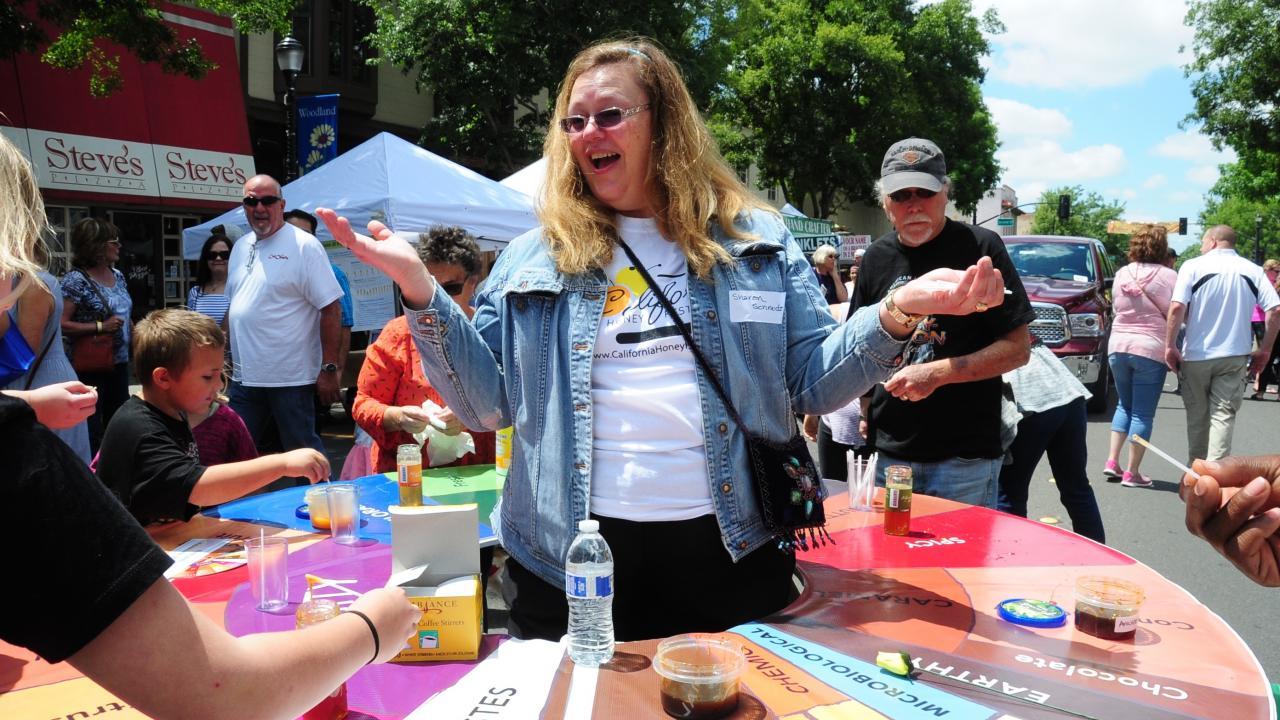
Milestones & Future Goals
Throughout the pandemic, many of us have been reassessing our work and programs. This has happened within the Honey and Pollination Center, too. As we move into 2022, with close to ten years of work, the Center has begun to refine and rethink our vision and mission. Our emphasis will be shifting into educating and promoting pure, unadulterated honey while addressing the needs and challenges of the beekeeping and honey packing industries. Having achieved many of our past goals (detailed below), the Center will now focus on expanding research and education efforts that address quality standards and appreciation of honey, as well as honey’s nutritional value, health benefits, and economics.
What we have accomplished since the Center’s inception in late 2012.
- Created a honey flavor wheel. Why? There wasn’t one. Plain and simple. The Center, situated within the Robert Mondavi Institute for Wine and Food Science, was able to draw on the expertise of faculty and staff in the UC Davis Sensory Science program. Honey was underappreciated and its varietal nuance was not understood or acknowledged. The development of the wheel helped to broaden the language used in describing honey.
- Develop a Bee Symposium to help educate small-scale beekeepers and promote bee health. Many from this group simply didn’t have the time or money to attend conferences and stay current with the latest research developments. Under the auspices of the Center, we were able to bring leading researchers from across the globe, in addition to the University’s own Entomological scientists to offer an inexpensive one-day program. At this point, the Bee Symposium has been superseded by the California Master Beekeeping Program.
- Help create and establish a Master Beekeeping Program for the State of California. Several years ago, Assistant Specialist in Cooperative Extension - Apiculture, Department of Entomology and Nematology, Elina Nino, along with several other University staff and faculty and other interested partners began to develop the first-year curriculum for a Master Beekeeping program. Along with the initial grant, the Center helped fund the program which now flourishes within the Department of Entomology and Nematology. Now offering courses in several areas of the state, the California Master Beekeepers are helping to educate over 200 “stewards and ambassadors of honey bees and beekeeping.”
- Community outreach: The Center was one of a small founding group that envisioned and brought to life the California Honey Festival. With over 15,000 attendees in our first year and over 30 thousand in the third, the Festival will once again return to Downtown Woodland on May 7th. Education and awareness are at the forefront of this exciting one-day event with speakers, pollinator gardens, cooking demonstrations, music and so much more.
And then there was the big one that wasn’t in the initial goal-setting program.
- MEAD: The fermented beverage made from honey.
In 2014, the Center proposed the idea of Mead Short courses to the chair of the Department of Viticulture and Enology. Intrigued, Prof. Dave Block brought together a team of professors and staff to develop our first Mead course. In the subsequent years, the Center has helped to educate a growing swath of mead makers from across the world. Yes – WORLD! And in doing so, we have plumbed Food Science, Viticulture as well as world-class mead makers to help educate this growing group. Each year we offer a hands-on Boot Camp in the Leed Platinum teaching winery as well as other beginner and more advanced levels.
Having realized so many goals, it is now the time to look towards an exciting and developing future.
